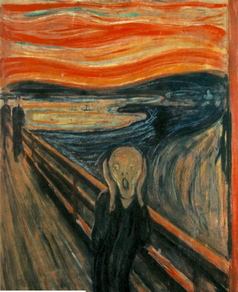 "One does not become enlightened by imagining figures of light, but by making the darkness conscious.” C.G Jung Lacking a worthwhile subject to blog about and seeking inspiration I picked up one of my go–to books: Meeting the Shadow, The Hidden Power of the Dark Side of Human Nature. It is a collection of 65 essays that explore the power and many sides of the dark side of human nature.
For some time now I have been trying to understand and translate into practical terms:
What is the shadow? The shadow, in Jungian terms, is the negative aspects of our personality – the imperfect and disowned parts of ourselves that we have unconsciously pushed away, hidden and buried deep within ourselves. During our early years, personality traits or qualities that are not compatible with the dominant ideals, values and aspirations of our parents, teachers or peers are generally rejected, shunned, criticized and devalued. As part of the moral development of children parents routinely say: Stop being so angry all the time… You must share… Don’t be selfish… Lying is sinful… It’s important to be strong… Crying is for babies. The message we get over and over is: You can’t be like this – you need to be like that!
We also reject aspects of our personality that don’t conform to our own self-image. For example:
To secure love and affection, to be liked and valued, we often need to hide unwelcome and undesirable attitudes emotions and behaviors. In other words, the shadow, which represents all that is unacceptable. In daily experience, the shadow is deeply hidden from one’s conscious awareness of the self. “Rage…jealousy…lying… resentment… blaming…greed…These forbidden feelings and behaviors arise from the dark, denied part of ourselves – the personal shadow. Everyone has a shadow, which begins to develop in childhood as a result of stuffing away negative feelings in order to build a proper ego. We encounter our shadow when we feel an unexplainable dislike of someone, when we uncover a long-buried, unacceptable trait in ourselves, or when we feel overwhelmed by anger, envy or shame”. Meeting the Shadow, The Hidden Power of the Dark Side of Human Nature, edited by Connie Zweig and Jeremiah Abrams How does the shadow give us trouble? The shadow works in mysterious and unexpected ways. We are alerted to its presence when we have strong disproportionate reactions and aversions to perceived negative qualities in someone else. Let’s say you have a friend who regularly goes to the spa, gets her hair and nails done each week and buys small luxuries you believe she can’t afford. You are critical about her priorities, her needs for instant gratification, her personal indulgences and how she uses her money. On further reflection, you recognize that this overly critical, judgmental, intolerant or even threatened reaction is attributed to your own shadow. You see the ways in which you have deprived yourself of any self-indulgences, small pleasures and have been overly frugal and dispirited from self-denial. By getting to know your shadow, you gain broader awareness of you hidden side – the feelings, desires or behaviors that you have denied in yourself. Pleasures, indulgences and behaviors that live in the shadow. We see ourselves for all that we would like to be, but not always all that we are. How does knowing the shadow heal us? Becoming intimate with our shadow allows us to open up to and embrace all that we are – the good, bad and the ugly. Such awareness and openness is healing. It helps to regulate reactions, moods and improve relationships. Doing so is known as shadow-work. It is all about befriending our shadow and making peace with our whole self and not just our favorite high-grade superior self, but our inferior one too. Self-awareness underlies personal growth. More self-acceptance of our own shadow means too that we become more tolerant, less judgmental and less negatively inclined towards others who express our shadow qualities. Accepting those disclaimed parts of us also means that we can make choices about how and when we express our shadow tendencies. Yes, we can be selfish, impractical, indulgent, un-ladylike or more ladylike. We can, with full awareness, experience our forbidden feelings: Rage…jealousy… resentment… blaming…greed and know they are unavoidably ours. One with the shadow, Coach Minda #shadow, #Jungianshadow, #shadow-work
10 Comments
|
My family, relationships, movement, nature, flexibility of mind, exploration of alternative perspectives & openness are central to my life.Archives
December 2021
|
Private and confidential
|
Connect with me
|


